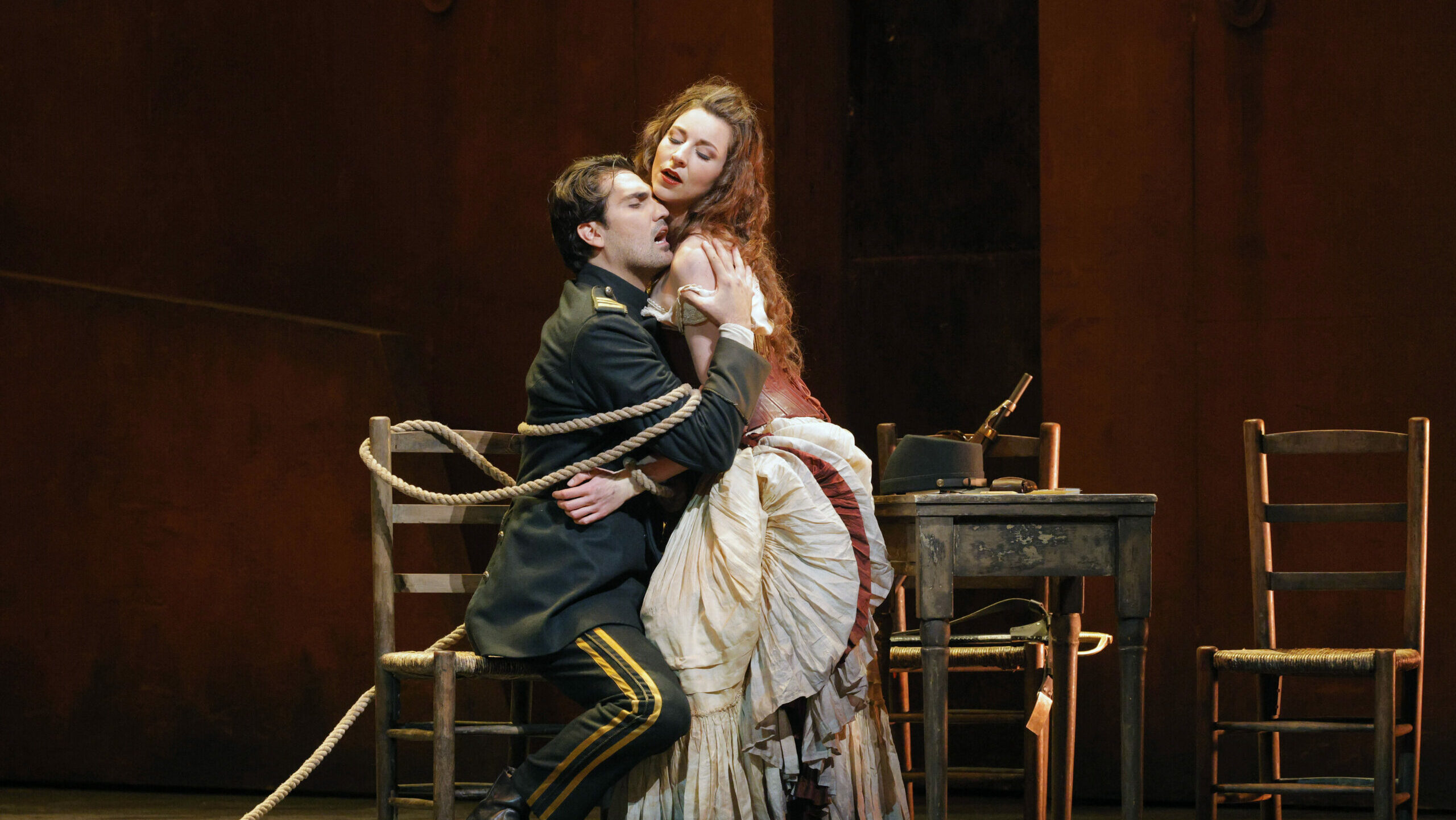
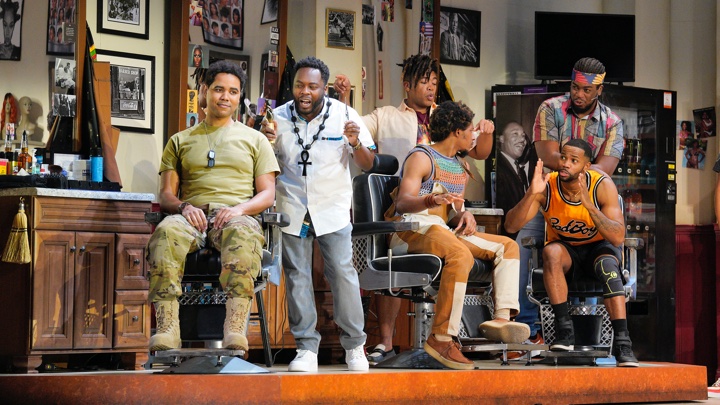
Not only is Liverman playing the lead role of Mike, but also created the concept, music, and lyrics (with collaborator DJ King Rico), and the book (also with DJ King Rico plus director Rajendra Ramoon Maharaj). The result is a dazzling new work characterizing the African-American community (sorely lacking in today’s opera scene) leading their lives as the denizens of a barber shop called Master Kutz on Chicago’s South Side. The title stems from Liverman’s desire to pattern the piece loosely after Rossini’s The Barber of Seville, not so much in terms of plot than in musical structure.
I must admit that I entered the theatre with a little trepidation after reading that the piece used a wide range of musical styles including gospel, barbershop quartet, R&B, jazz, and even hip-hop to tell the story while utilizing operatic–style voices. I needn’t have worried. The score is a marvel, combining the musical styles seamlessly. Orchestrator Marcus Norris and conductor Kedrick Armstrong have combined to bring the raucous, daring score to vivid life. DJ King Rico is the on-stage DJ controlling the electronic elements of the music.
The story concerns barbers Mike (Liverman) and his brother Garby (a stunning presence and deep-voiced Norman Garrett). There is conflict between the brothers from the beginning, Mike wanting to strengthen their father’s legacy by keeping the barbershop running and despairing that Garby is using the shop for running a successful numbers game.
Both are immensely protective of their niece CeCe (Symone Harcum), preparing to go to college, financed by Garby’s numbers cash. Cece actually begins the piece by introducing the various characters via dance—we learn later that the character “hasn’t spoken a word since her mother died,” so she communicates through movement and her splendid dance skills.
In the shop, we meet the various others peopling the shop as “regulars,” Bootleg Joe (Lunga Eric Hallam, who adds comic elements as he fails to sell any of the various items he has clearly stolen. Then Chantel (Melody Betts), the head beautician of the shop with her mischievous little son Neil (Di’Aire Wilson.) Chantel’s customer is the boisterous man-hungry Sandra (Symone Harcum).
We also meet Charlie (Terrence Chin-Loy), a gay barber on staff, plus customers Leeroy, Sam, and later CJ (Martin Luther Clark, a character returning to the shop after a stint in the military) and his former lover Rose (Cecilia Violetta Lopez, now in a relationship with Garby). It is a wonder that all these different characters are so well delineated, three-dimensional, with clear purposes and actions.
The conflict deepens in the second act when Leeroy rushes in to tell Garby that there must be a snitch in the shop, as the police are on their way to raid the shop. As Garby and Leeroy desperately pack up their money and get ready to flee, CeCe enters and Garby asks her to “cover for him.”
The police arrive, surround CeCe, and through misunderstandings, force her to the floor, tase her, and take her away. Meanwhile Mike and the gang have gone to a club where Rose is performing, and when they hear about CeCe, they are furious about their helplessness as a community in the face of police harassment.
Everyone returns to the barbershop to confront Garby until finally CeCe, released and seemingly unharmed, finally finds her voice to describe the tasing and to demand that her uncles stop fighting and reconcile. There is a palpable sense of community bonding in the ending, both happy and moving.
The piece is filled to the brim with remarkable singing and dancing. Choreographer Maleek Washington is blessed with five superb dancers whose abilities are absolutely stunning, and his choreography simply amazes in its complexity and precision.
Liverman’s booming baritone alongside the equally booming baritone of Garrett manage to be nuanced and powerful and deeply expressive. Clarke’s exquisite tenor soars into the audience as CJ and pierces the hearts of all. Betts is an absolute force of nature as the sassy Chantel, acting with fierce power and producing a huge singing voice giving us a wall of bright sound flowing into the audience.
Harcum is a delight as Sandra, amusing in her vanity and singing and acting with great comic timing. Shalome’s CeCe is the very picture of genuine innocence. Lopez didn’t sound fully warmed up in the first act, but her soprano movingly filled out in Act Two.
The design team is also to be commended. Set designer Marcus Norris creates a realistic barbershop as well as the shop’s office. The colorful and delightful costumes are by Devaria D. Simmons, and the vivid and effective lighting is by Jiyoun Chang. Also adding to the scene is the realistic projections of Chicago scenes by video designer Roma Flowers.
There are a few minor quibbles—there are several painful attempts at rhyming in the libretto, and we would really have appreciated some explanation of CeCe’s release from police custody. Also, Chantel on her entrance complains bitterly about the heat: “It’s like an oven in here”, looks like she may faint, and then neither she or anyone else ever mentions it again. A bit of a red herring…
Nevertheless, The Factotum is an enormous achievement and an important work for an underserved community and all of us, covering a number of contemporary social issues without preaching or heavy-handedness. There is a moving sweetness about these characters, even at their worst. The ending may seem very old fashioned, but it works as fine theatre.
I’m quite sure we’ll see and hear a lot more of The Factotum. The sold-out run of the show is being greeted with huge and well-deserved ovations. I highly recommend it. Lyric Opera has done Chicago a service by having the courage to present new work so effectively.
Photos by Cory Weaver


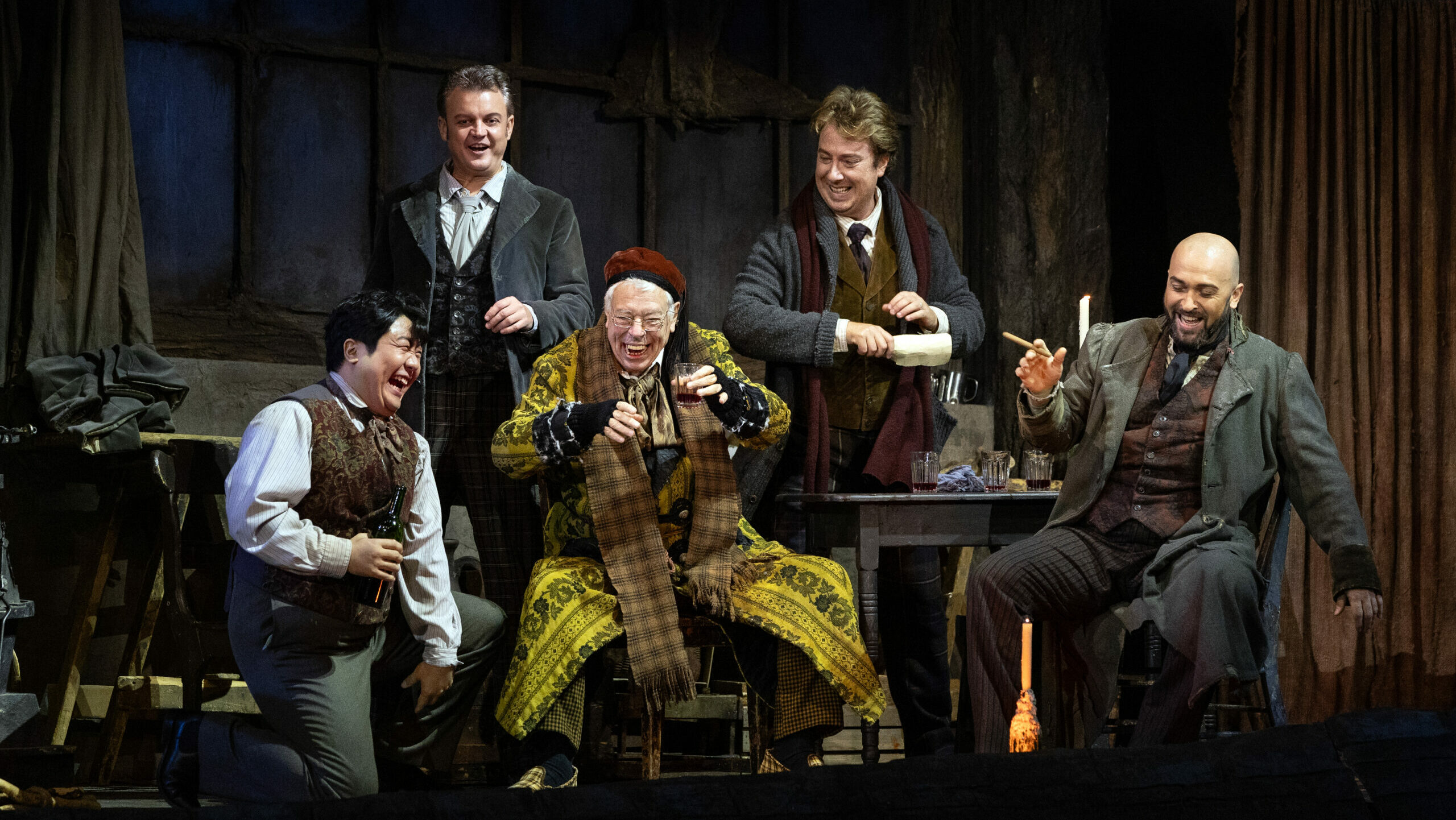
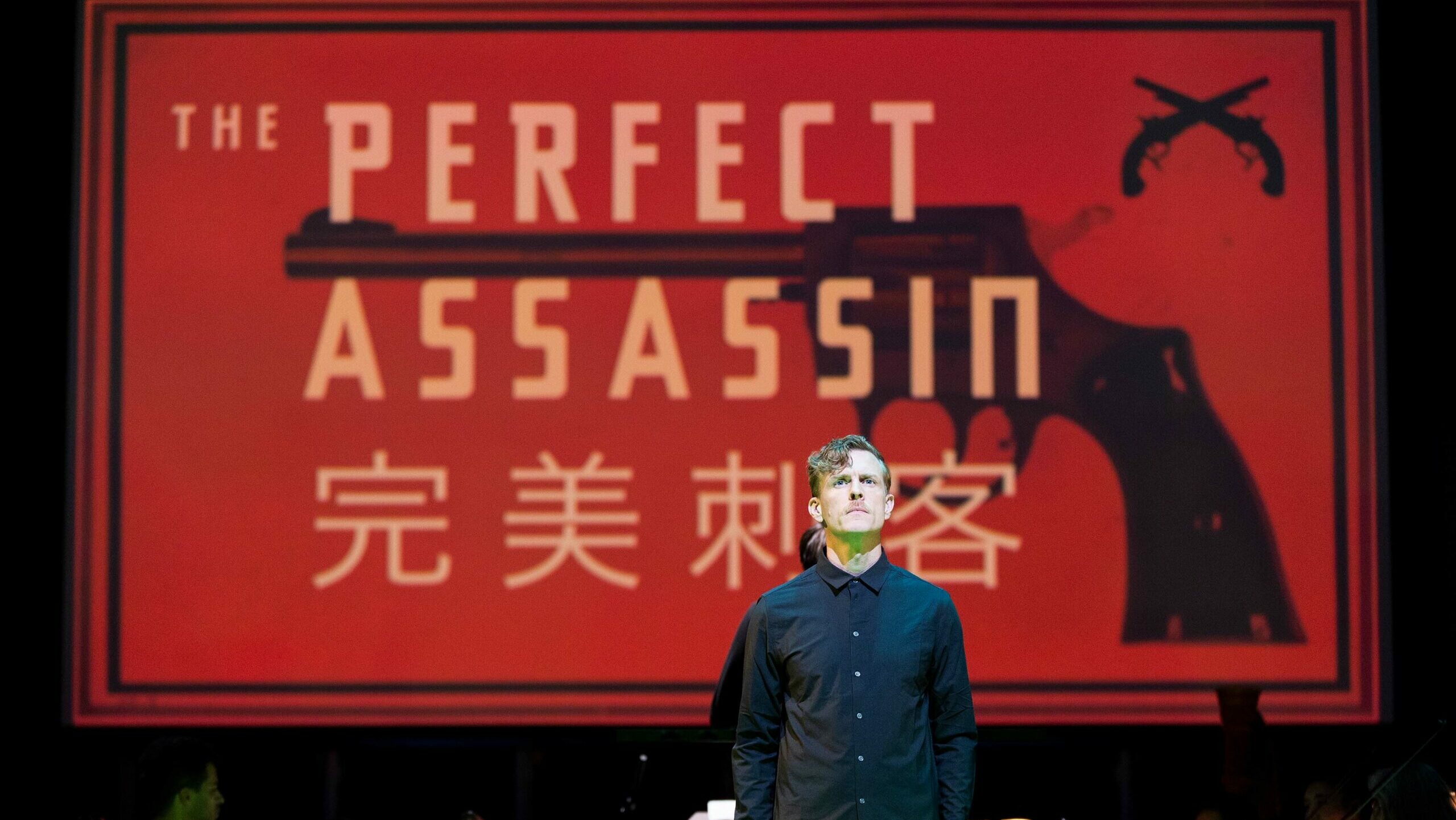
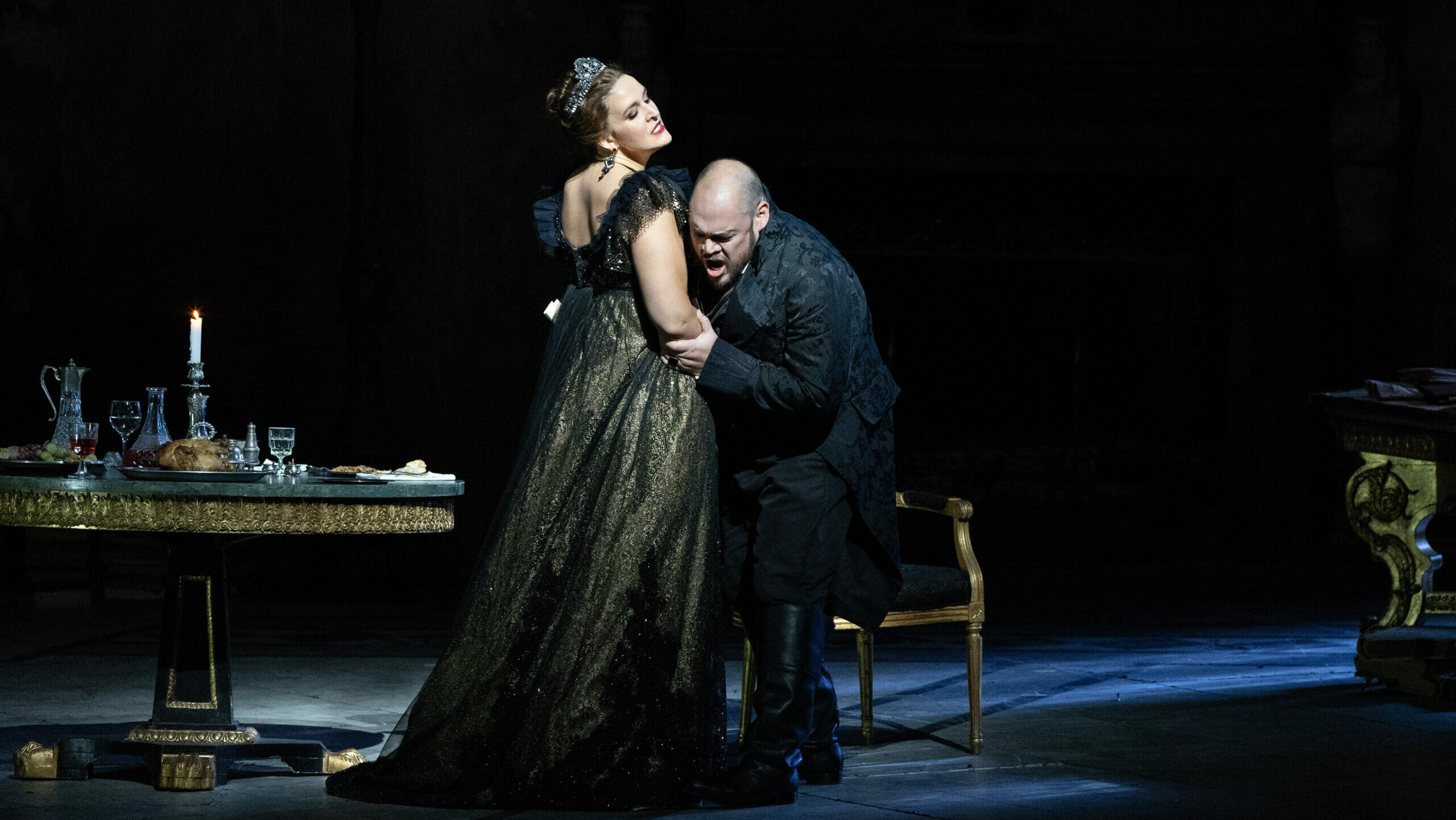


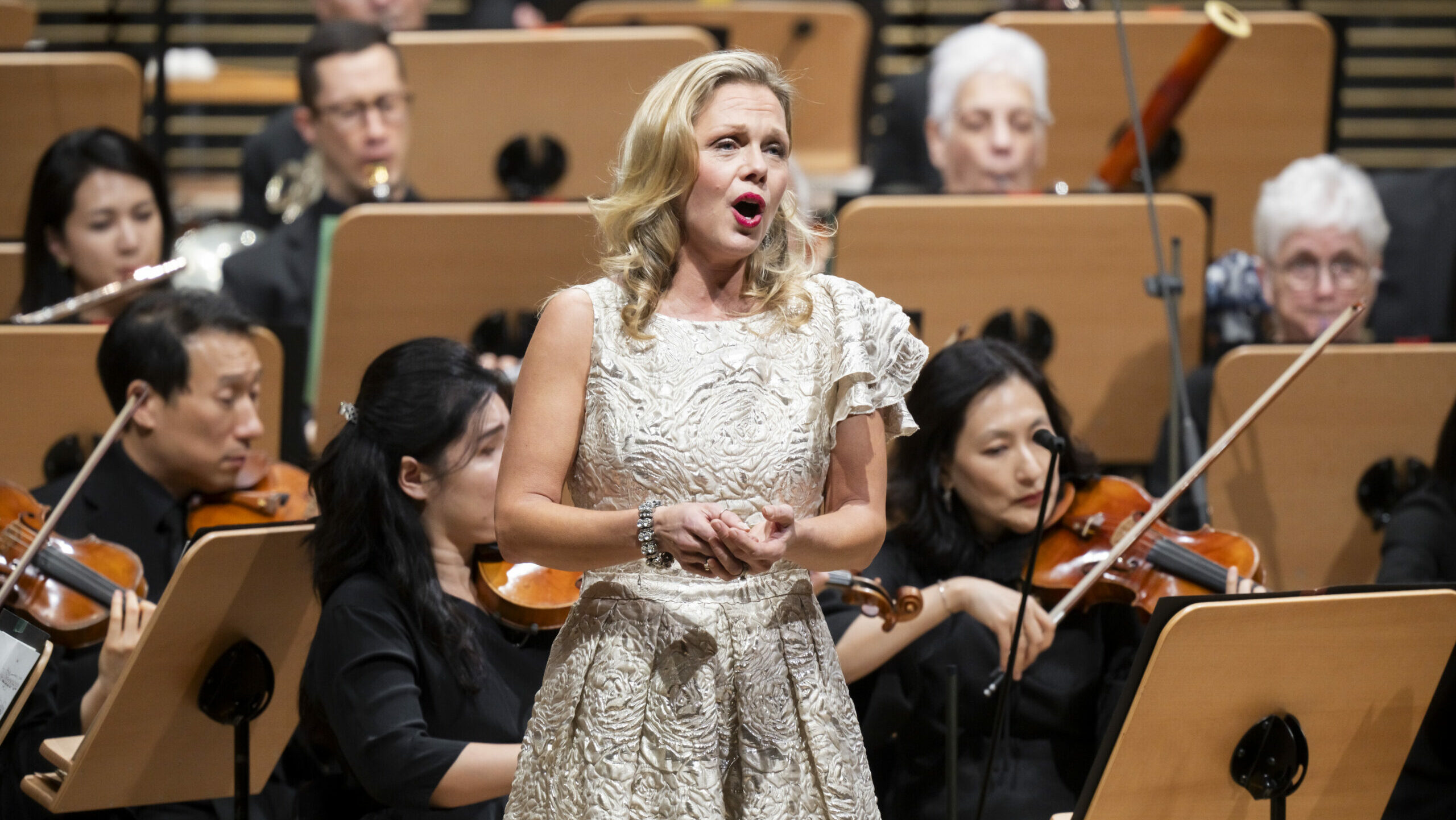
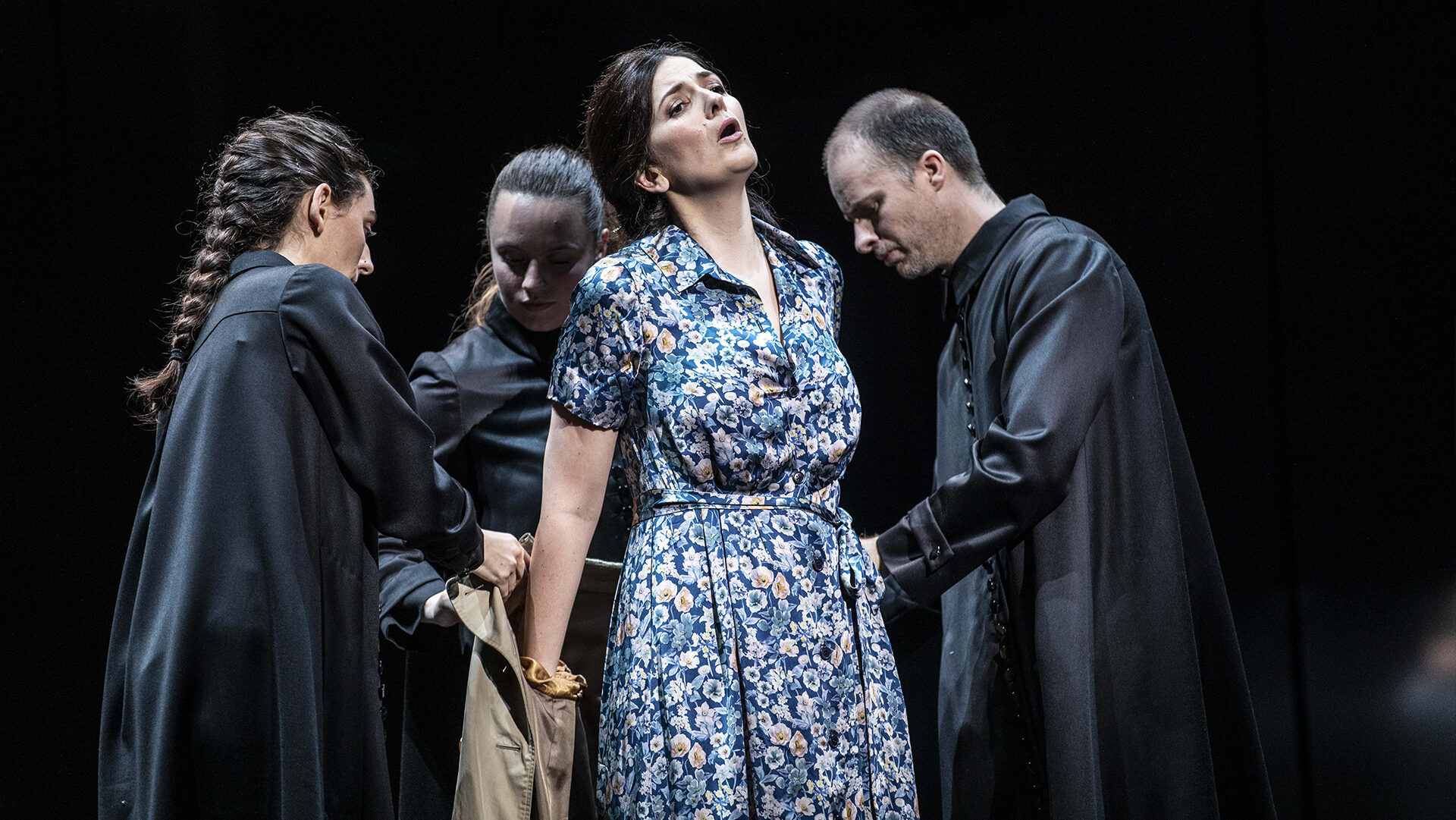
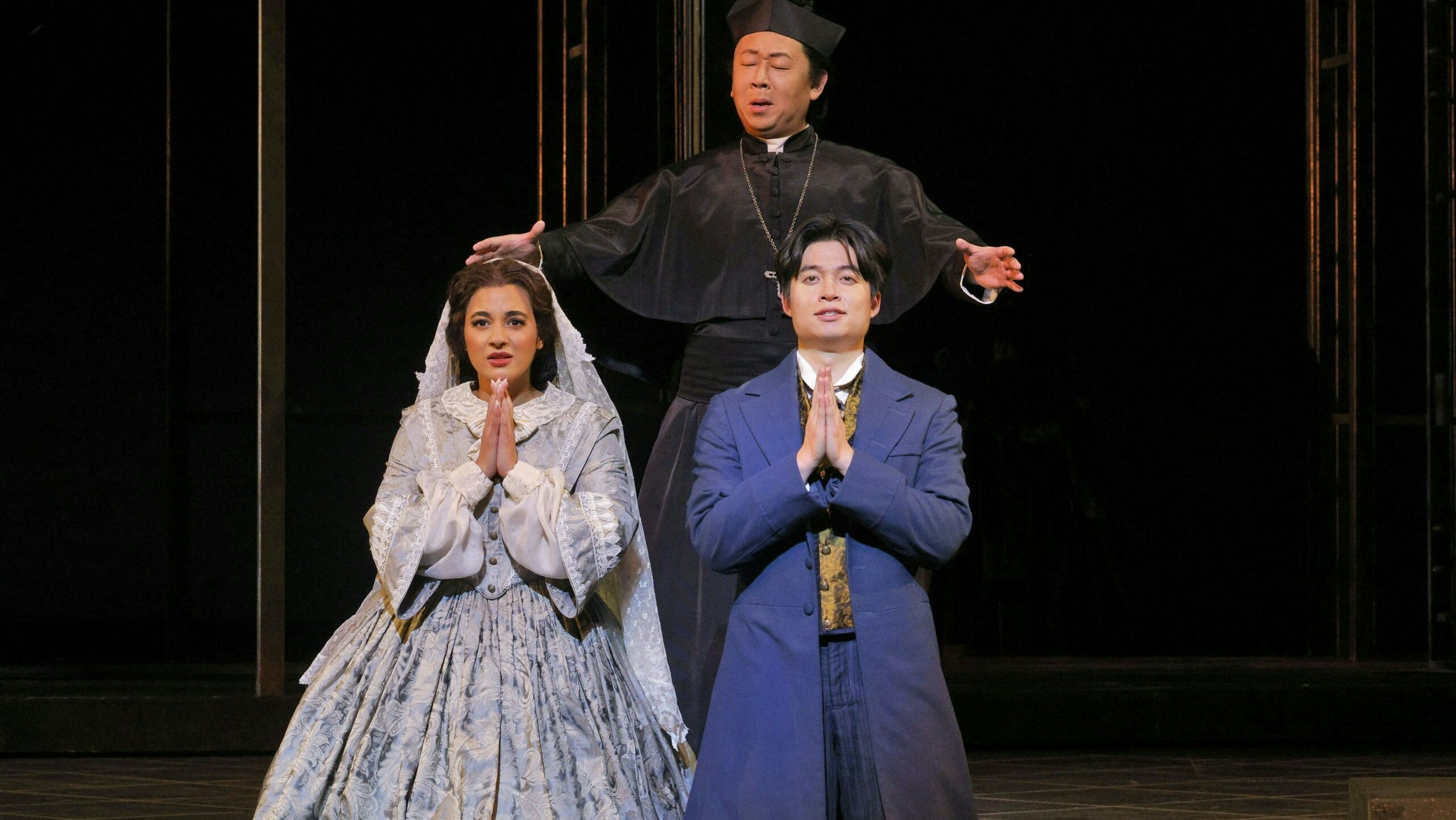
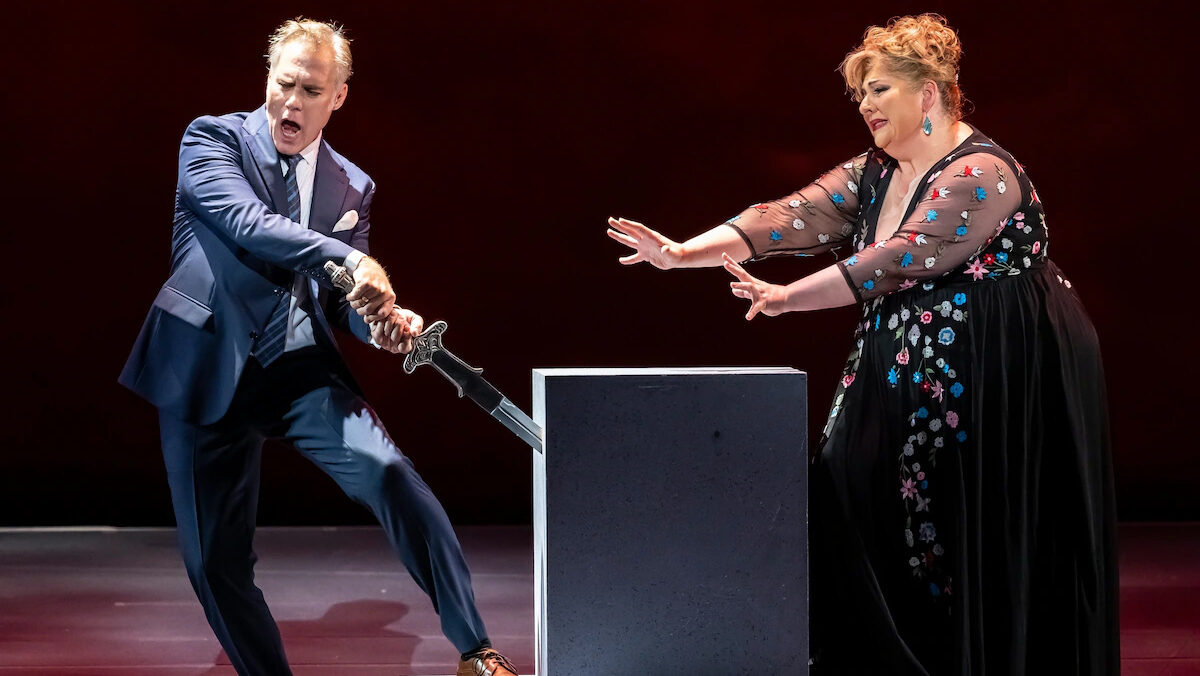
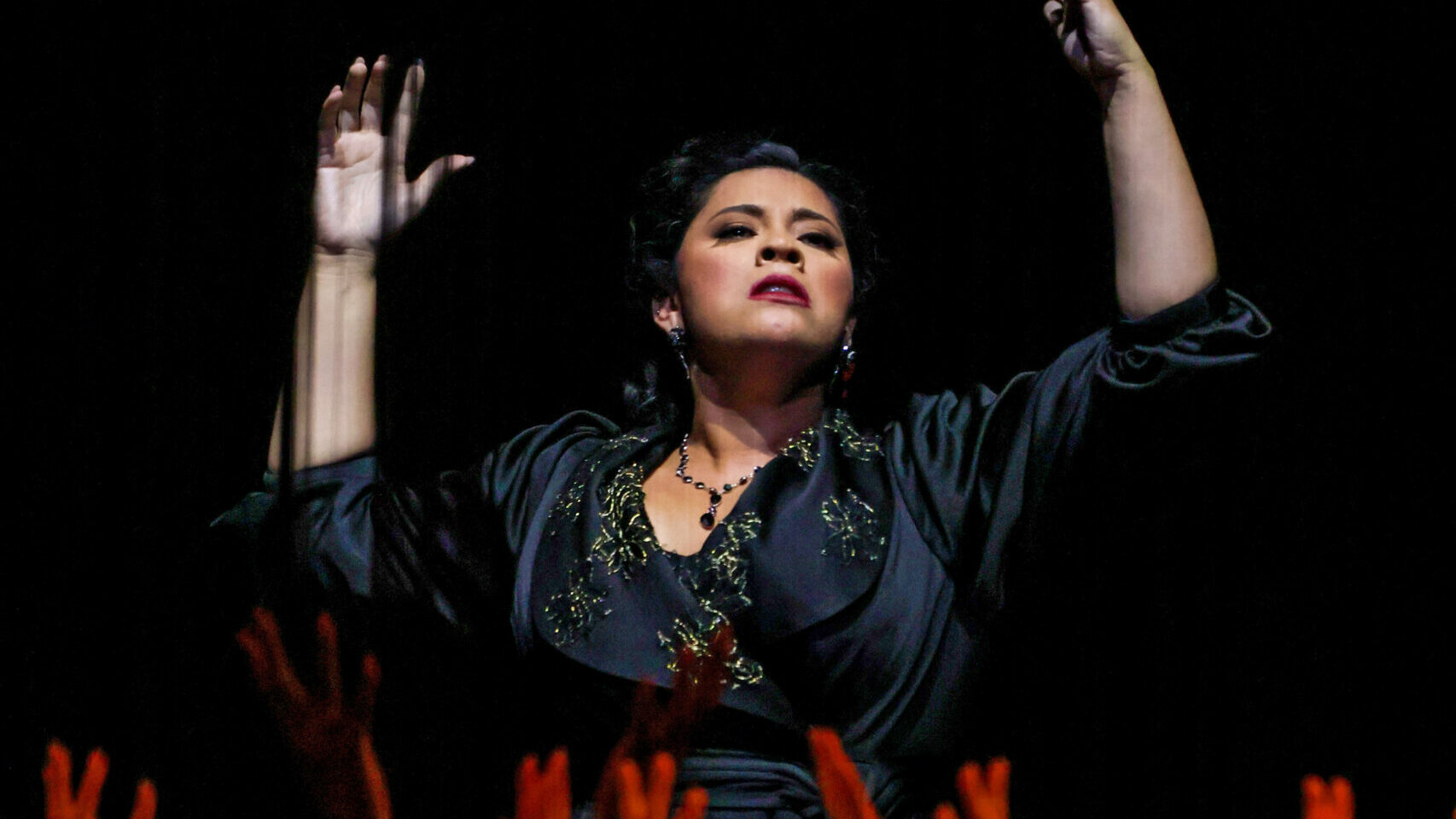
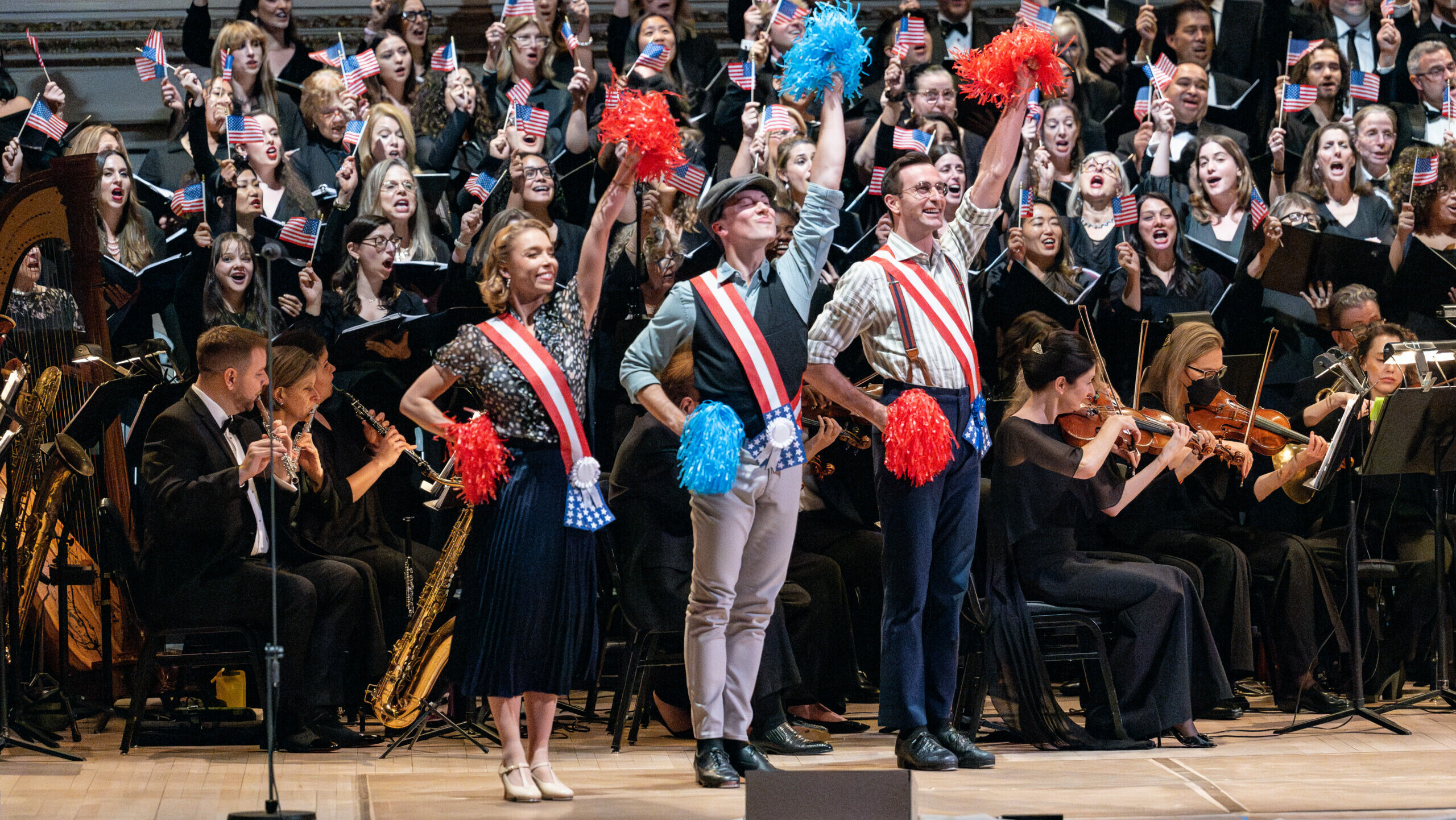
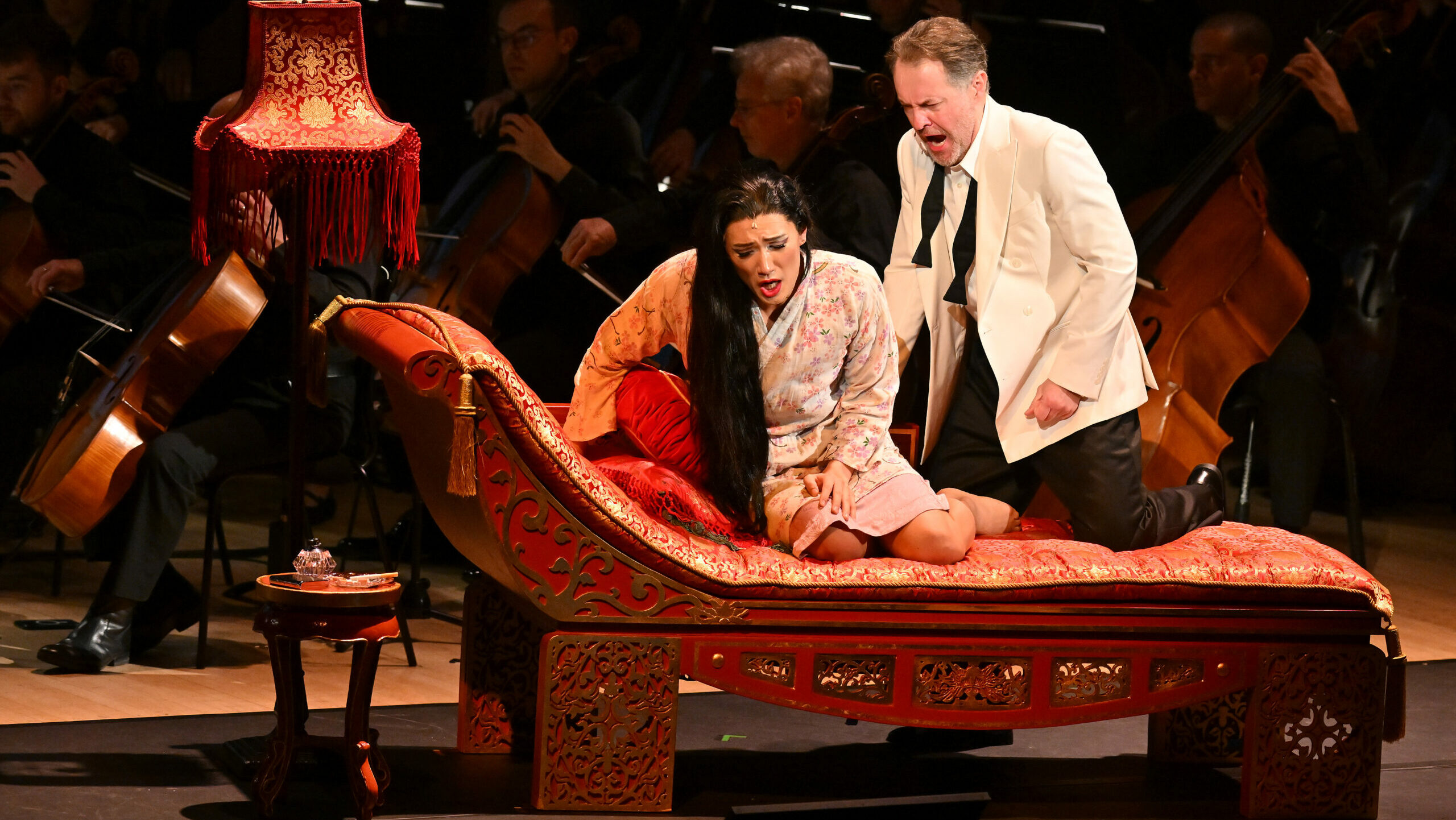
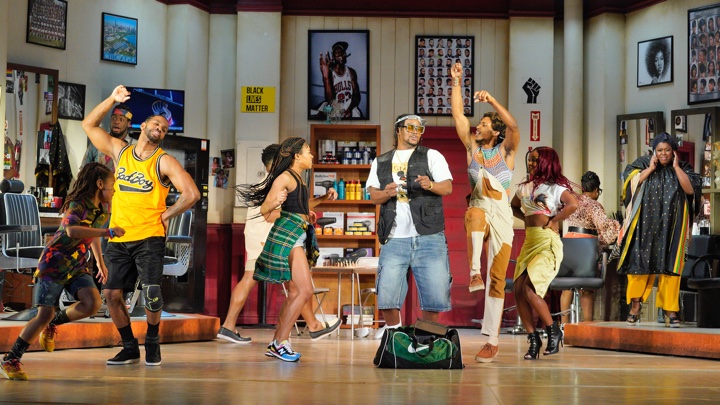
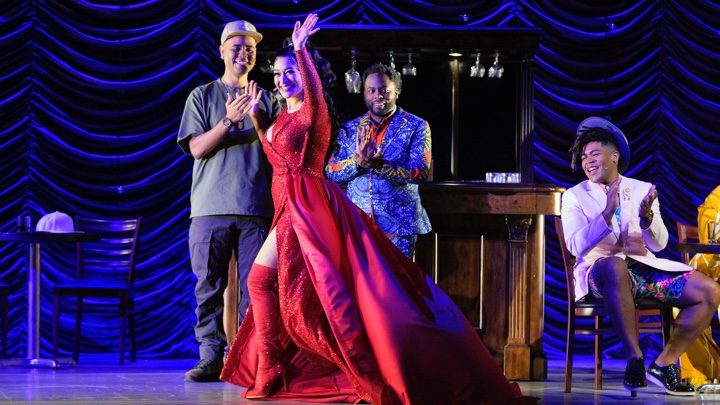






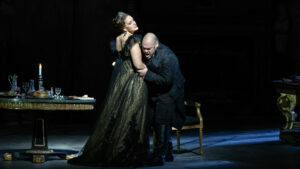
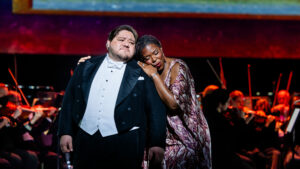




Comments